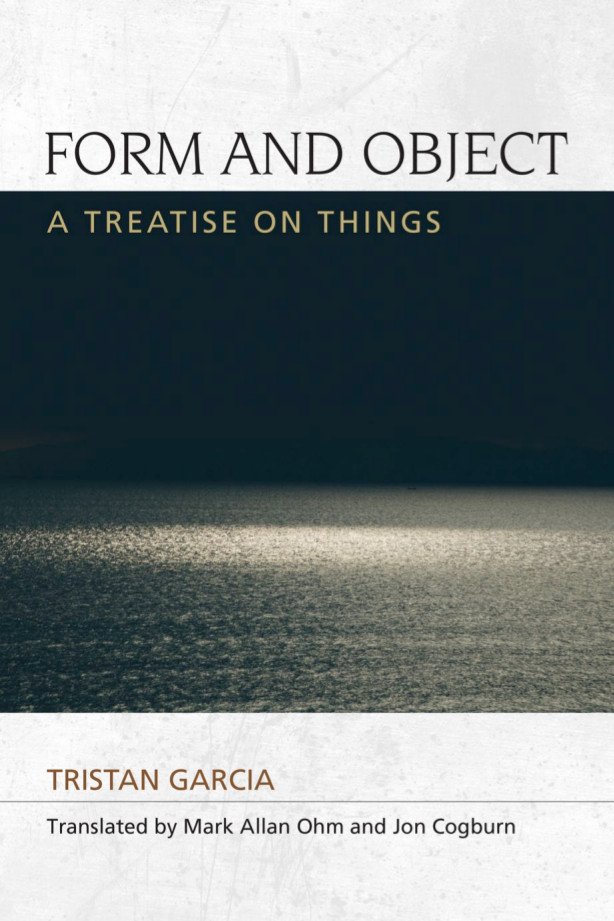Luciana Parisi: Contagious Architecture: Computation, Aesthetics, and Space (2013)
Filed under book | Tags: · abstraction, aesthetics, algorithm, architecture, cognition, computation, computing, cybernetics, design, evolution, feedback, infinity, information, interaction design, knowledge, media, metaphysics, networks, neural networks, philosophy, processing, randomness, sensors, software, space, temporality, time, topology, variation

“In Contagious Architecture, Luciana Parisi offers a philosophical inquiry into the status of the algorithm in architectural and interaction design. Her thesis is that algorithmic computation is not simply an abstract mathematical tool but constitutes a mode of thought in its own right, in that its operation extends into forms of abstraction that lie beyond direct human cognition and control. These include modes of infinity, contingency, and indeterminacy, as well as incomputable quantities underlying the iterative process of algorithmic processing.
The main philosophical source for the project is Alfred North Whitehead, whose process philosophy is specifically designed to provide a vocabulary for “modes of thought” exhibiting various degrees of autonomy from human agency even as they are mobilized by it. Because algorithmic processing lies at the heart of the design practices now reshaping our world—from the physical spaces of our built environment to the networked spaces of digital culture—the nature of algorithmic thought is a topic of pressing importance that reraises questions of control and, ultimately, power. Contagious Architecture revisits cybernetic theories of control and information theory’s notion of the incomputable in light of this rethinking of the role of algorithmic thought. Informed by recent debates in political and cultural theory around the changing landscape of power, it links the nature of abstraction to a new theory of power adequate to the complexities of the digital world.”
Publisher MIT Press, 2013
Technologies of Lived Abstraction series
ISBN 0262018632, 9780262018630
392 pages
For a New Computational Aesthetics: Algorithmic Environments as Actual Objects lecture by Parisi (2012, video, 72 min).
Reviews: Lecomte (Mute, 2013), Ikoniadou (Computational Culture, 2014).
PDF (24 MB, updated o 2021-10-28)
Comments (2)Tristan Garcia: Form and Object: A Treatise on Things (2011–)
Filed under book | Tags: · animal, art, being, body, culture, economy, event, evolution, form, gender, human, knowledge, life, metaphysics, nature, nothing, object, ontology, philosophy, relation, representation, self, thing, time, value

“What is a thing? What is an object? Tristan Garcia aims to overturn 100 years of Heideggerian orthodoxy about the supposedly derivative nature of objects to put forward a new theory of ontology that gives us new insights into the world and our place in it.
Garcia’s original and systematic formal ontology of things strips them of any determination, intensity or depth. From this radical ontological poverty, he develops encyclopaedic regional ontologies of objects. By covering topics as diverse as the universe, events, time, the living, animals, human beings, representation, arts and rules, culture, history, political economy, values, classes, genders, ages of life and death, he shows that speculative metaphysics and ontology are alive and well.”
First published as Forme et objet. Un traité des choses, PUF, Paris, 2011.
Translated by Jon Cogburn and Mark Allan Ohm
Publisher Edinburgh University Press, 2014
ISBN 0748681493, 9780748681495
462 pages
On Graham Harman’s System and My Own by Garcia (2013), Harman’s response.
Interviews with Garcia: by Liam Jones (Figure/Ground, 2014), Philosophical Readings (2014).
Reviews and commentaries: Jean-Clet Martin (2012, FR, ES), Harman (Continent, 2012), Nathan Brown (Radical Philosophy, 2014).
Wikipedia (FR)
Publisher
WorldCat
PDF, PDF (updated on 2018-5-8)
Comment (0)Sylvia Berryman: The Mechanical Hypothesis in Ancient Greek Natural Philosophy (2009)
Filed under book | Tags: · antiquity, astronomy, automata, engineering, history of science, history of technology, machine, mechanics, philosophy, physics, science, technology

“It has long been thought that the ancient Greeks did not take mechanics seriously as part of the workings of nature, and that therefore their natural philosophy was both primitive and marginal. In this book Sylvia Berryman challenges that assumption, arguing that the idea that the world works ‘like a machine’ can be found in ancient Greek thought, predating the early modern philosophy with which it is most closely associated. Her discussion ranges over topics including balancing and equilibrium, lifting water, sphere-making and models of the heavens, and ancient Greek pneumatic theory, with detailed analysis of thinkers such as Aristotle, Archimedes, and Hero of Alexandria. Her book shows scholars of ancient Greek philosophy why it is necessary to pay attention to mechanics, and shows historians of science why the differences between ancient and modern reactions to mechanics are not as great as was generally thought.”
Publisher Cambridge University Press, 2009
ISBN 0521763762, 9780521763769
286 pages
Review (Serafina Cuomo, Aestimatio, 2012)
Review (Jean De Groot, Metascience, 2012)
Talk by the author (video, at UBC, 104 min, 2011)

